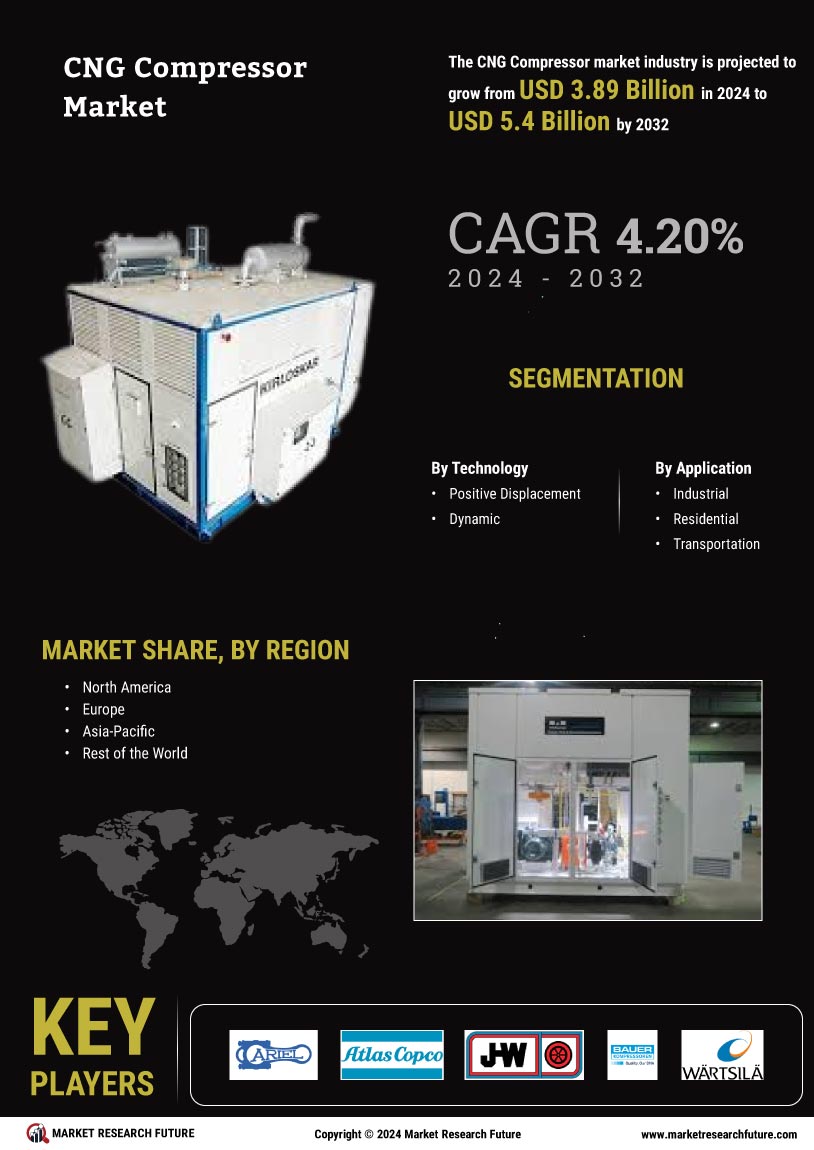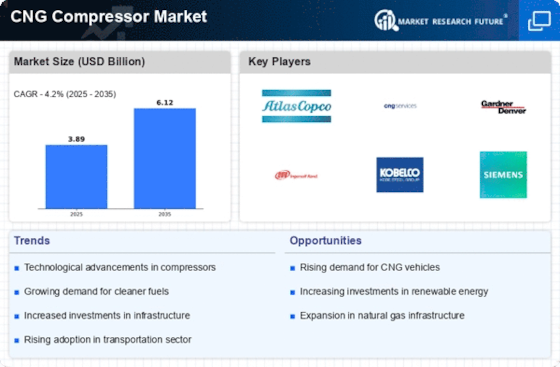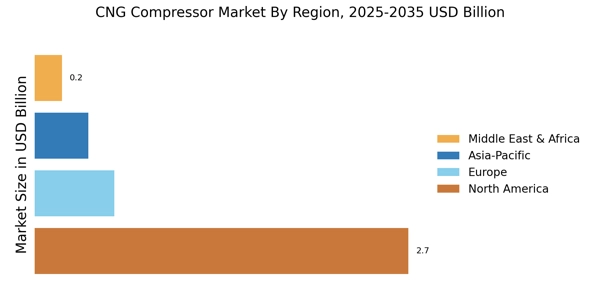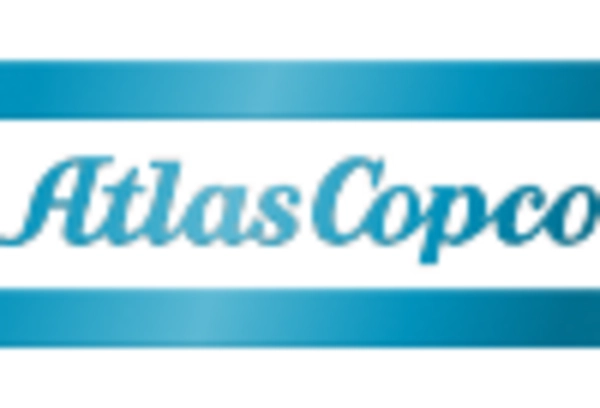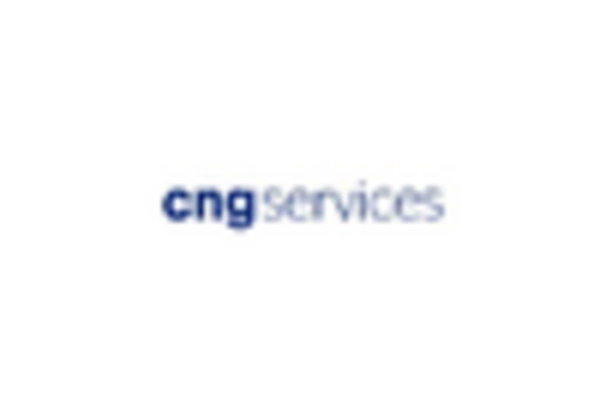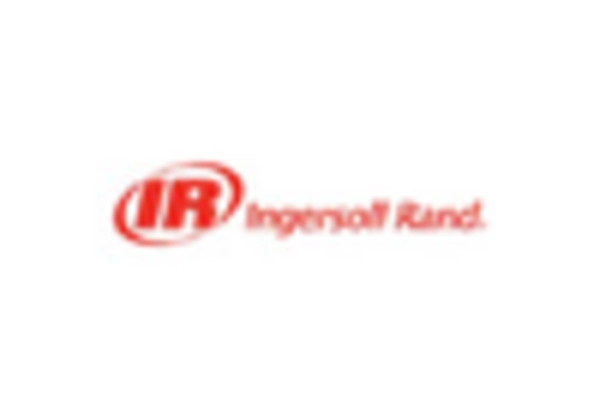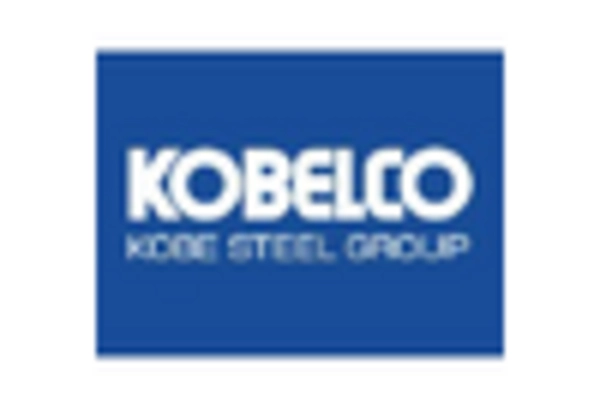Government Incentives and Policies
Government incentives and policies aimed at promoting cleaner fuels are crucial drivers for the CNG Compressor Market. Many countries have implemented tax breaks, subsidies, and grants to encourage the adoption of natural gas as a transportation fuel. For instance, various regions have established programs that support the installation of CNG refueling stations, which directly impacts the demand for CNG compressors. In 2025, it is estimated that government initiatives could lead to a 15% increase in the number of CNG refueling stations, thereby enhancing the market for CNG compressors. These supportive measures not only foster market growth but also align with broader environmental goals, making the CNG Compressor Market more attractive to investors.
Rising Fuel Prices and Economic Viability
The rising prices of conventional fuels are driving the shift towards natural gas, thereby benefiting the CNG Compressor Market. As gasoline and diesel prices fluctuate, consumers and fleet operators are increasingly considering CNG as a cost-effective alternative. In 2025, the price of CNG is expected to remain significantly lower than that of traditional fuels, making it an economically viable option for many. This shift not only encourages the adoption of CNG vehicles but also necessitates the expansion of CNG refueling infrastructure, which in turn boosts the demand for CNG compressors. The economic advantages associated with CNG are likely to sustain the growth of the CNG Compressor Market in the coming years.
Increasing Demand for Natural Gas Vehicles
The rising demand for natural gas vehicles (NGVs) is a pivotal driver for the CNG Compressor Market. As consumers and businesses seek more sustainable transportation options, the adoption of NGVs has surged. In 2025, the number of NGVs is projected to reach approximately 30 million units worldwide, reflecting a significant increase from previous years. This trend is likely to stimulate the demand for CNG compressors, which are essential for refueling infrastructure. The expansion of CNG refueling stations is also anticipated, further propelling the CNG Compressor Market. As more regions invest in natural gas infrastructure, the need for efficient and reliable CNG compressors becomes increasingly critical.
Environmental Regulations and Sustainability Goals
Stringent environmental regulations and sustainability goals are compelling industries to seek cleaner fuel alternatives, thus driving the CNG Compressor Market. Governments worldwide are implementing stricter emissions standards, pushing companies to transition from diesel and gasoline to natural gas. In 2025, it is anticipated that more than 50 countries will have adopted regulations favoring the use of natural gas in transportation, which will significantly impact the demand for CNG compressors. This regulatory landscape not only promotes the use of CNG but also encourages investments in the necessary infrastructure, including compressors. As industries strive to meet sustainability targets, the CNG Compressor Market is poised for substantial growth.
Technological Innovations in Compression Technology
Technological innovations in compression technology are transforming the CNG Compressor Market. Advances in compressor design, efficiency, and automation are enhancing the performance and reliability of CNG compressors. For example, the introduction of high-efficiency compressors can reduce energy consumption by up to 20%, which is a significant improvement. Additionally, the integration of smart technologies allows for real-time monitoring and predictive maintenance, further optimizing operations. As these innovations continue to emerge, they are likely to attract new investments and drive competition within the CNG Compressor Market. The ongoing research and development efforts in this sector suggest a promising future for enhanced compressor technologies.
